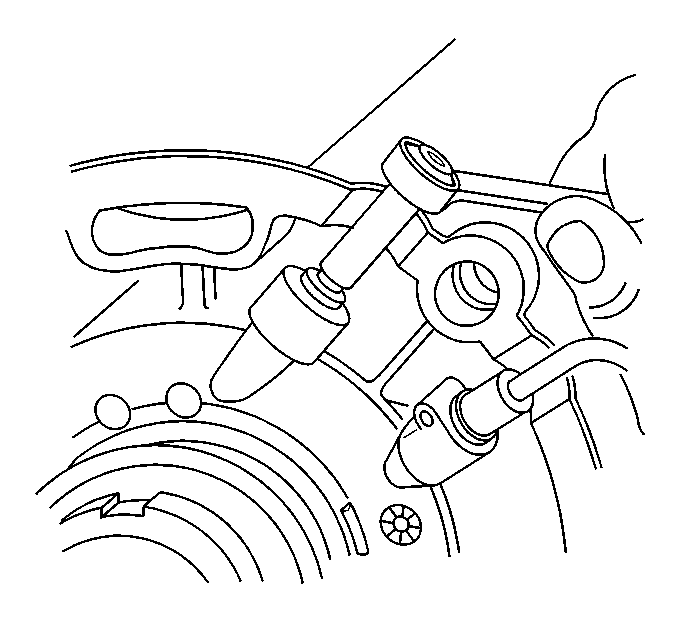For 1990-2009 cars only
Notice: DO NOT use fluid which has been bled from a hydraulic clutch system, in order to fill the clutch master cylinder reservoir, due to the possibility that the fluid may be aerated, have too much moisture content, or be contaminated and may cause system or vehicle damage.
Bleeding the hydraulic clutch system is necessary whenever the level of fluid in the clutch master cylinder reservoir has been allowed to fall so low that air has been drawn into the master cylinder.
- Clean all dirt and debris from the clutch master cylinder cap to ensure that no foreign substances will enter the system.
- Remove the clutch master cylinder reservoir cap with diaphragm.
- Fill the clutch master cylinder reservoir with clutch hydraulic fluid GM P/N 12345347, or equivalent, if necessary.
- Raise and suitably support the vehicle. Refer to Lifting and Jacking the Vehicle in General Information.
- Remove the intermediate exhaust pipe. Refer to Intermediate Pipe Replacement in Engine Exhaust
- Remove the driveline tunnel closeout panel. Refer to Floor Panel Tunnel Panel Reinforcement Replacement in Propeller Shaft.
- Have an assistant depress the clutch pedal fully and hold.
- Loosen the bleeder screw on the clutch actuator cylinder to purge air.
- Tighten the bleeder screw.
- Release the clutch pedal.
- Repeat steps 7 through 10 until all air is completely evacuated.
- Fill the clutch master cylinder reservoir with clutch hydraulic fluid GM P/N 12345347, or equivalent, if necessary.
- Install the driveline tunnel closeout panel. Refer to Floor Panel Tunnel Panel Reinforcement Replacement in Propeller Shaft.
- Install the exhaust intermediate pipe. Refer to Intermediate Pipe Replacement in Engine Exhaust.
- Lower the vehicle.

Check and refill the clutch master cylinder reservoir with clutch hydraulic fluid GM P/N 12345347, or equivalent, as necessary in order to prevent air from being drawn through the clutch master cylinder.
